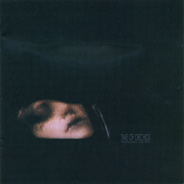Time Of Orchids
Namesake Caution
(Cuneiform)
Once upon a time, reading a group's/an artist's name that one had never seen
in print before (provided it was not their very first work) was always
a source of great amusement: how on earth had one missed them? I'd say
that today the opposite is true, though the number of potential sources of information has grown exponentially. (My mind panics at the thought of the multitude of separate niches that will proliferate in isolation as soon
as all commercial physical support will vanish; and what about our criteria
of critical judgment, will they became as separated and as incommensurable
as those niches will be?)
So I wasn't really surprised when I found a CD by (what to me was) "an
unknown group" in my mailbox. The CD booklet wasn't of much help either: "Produced,
mixed and mastered by Colin Marston and Time Of Orchids" was all it
said. No names of those playing, no list of instrumentation. A Web search
would do, but inside the envelope there was a press release somebody had
kindly sent me with the CD.
Namesake Caution is the group's fifth album, coming after Sarcast While, released
in 2005 by John Zorn's Tzadik: so - the label in question being highly
prestigious and widely trusted - we can safely assume the musicians involved
to be held in high esteem, if not quite well-known, and experienced. Their
names: Chuck Stern on keyboards, vocals and guitar; Eric Fitzgerald on
guitar and vocals; Jess Krakow on bass; David Bodie on drums. The bass
player is the only member of the group whose work I know a little bit,
Krakow having played quite well on Pork Chop
Blue Around The Rind, the homage to Captain Beefheart that Fast
'n' Bulbous - the group led by Gary Lucas and Phillip Johnston - released
about three years ago. But all those involved here have curricula which
tell of a long and versatile practice on their instruments.
What is immediately apparent upon reading the press release is that in the
course of their career the group have often changed their line-up and style;
which after all is not too difficult to imagine when reading a partial
(!) list of their influences and similarities: John Barry/Ennio Morricone,
Mr. Bungle, Nirvana, Thinking Plague, The Magic Band, Yes, Oliver Messiaen,
Swans, Radiohead, Sleepytime Gorilla Museum. Wow! Let's listen to the CD.
The chapter called "influences &
similarities" is always a hard one, and especially so today that the
vast amount of available recorded music makes it possible for one to be influenced
by the Beatles while at the same time having never heard them. The same goes
for King Crimson, and for all those groups, both big and obscure, which have
cast an influence on those who came before us.
The way Colin Marston and the group have organized the sound is quite interesting: "fat" drums
in the back, rich with the sound of the room, wide in the stereo spectrum, while clean arpeggio guitars (a "ping" that
to me sounds quite Fender-related) are placed in the foreground; sometimes
harsher-sounding guitars appear. The whole sounds as being closely related
to quite a few (so-called) post-rock albums of the more "rock" variety
- in fact, the opium-scented atmosphere of In Color Captivating,
the brief instrumental track which opens the album, and the following,
vocal, track, Windswept Spectacle, point towards that. But as the CD goes
on, a clear shading of what we could call "modern metal" - the
one that, right or wrong, is considered as being closely related to modern-day
King Crimson - emerges; not too surprisingly, on Meant (Hush-Hush), this
explodes in a "Fear in Space" howl that a recent concert experience
tells me to be quite typical of the group Sleepytime Gorilla Museum.
I haven't really mentioned the vocals: there are lots of them, layered, deep
in dialog, they sound as natural in their
"prog" chorus mode as in climates we could easily call
"pop"; here, after the album's "post-rock" opening, Darling
Abandon could be... well, if not a contender for Top 40 or a presence on
FM radio, at least a mini-hit on iTunes.
What I found really peculiar was hearing quite a few Keneally-related (!) moments,
where vocal traits of the melodic and soft kind went hand-in-hand with
intricate guitar arpeggios; this is true of Parade Of Seasons, but it was
at 39" of the next tune, The Only Thing - after an instrumental melody
that I almost expected to hear as interpreted by The Very Wonderful Northettes
- that the vocal attack, pronunciation and phrasing included, made me look
for a non-existent "special thanks" list.
Having talked about the "list of ingredients" (ha! some synthetic-sounding
keyboards also appear), here comes the moment of the final judgment. Which
ain't really easy. It goes without saying that the album comes thanks to
an involved studio process: I really believe that, when listened to on
a tiny stage, in a tiny club, with no vocals/guitars overdubbing, with
all those things that can go wrong in such cases, the group won't sound
that different from your average indie-rock/post-rock group w/guitars with
a propensity to go "modern
metal". Which, it could be argued, is not necessarily a bad thing. And,
by the way, it was the album we were talking about, right? Here things
really get complicated: sure, the group is good, but while listening to
the CD I often found myself "listening" to the group's sources,
not to what the group was really playing. The logical consequence here
being that the less one knows, the more one will like Namesake Caution.
Anyway, in the background I always perceive something really insipid, what
once was called "lack of personality".
Beppe Colli
© Beppe Colli 2008
CloudsandClocks.net | Jan. 21, 2008











